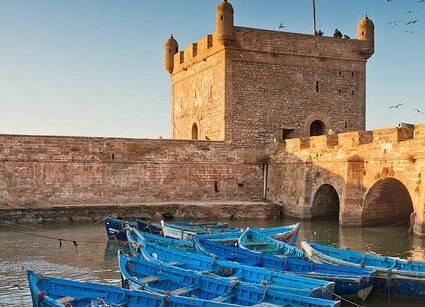The Amazighe Heritage Museum, located in Agadir, Morocco, is a cultural treasure trove dedicated to celebrating and preserving the rich heritage of the Amazigh people, also known as Berbers. This museum stands as a tribute to the indigenous peoples of North Africa, offering visitors a fascinating insight into their history, traditions, and way of life.
As you enter the Amazighe Heritage Museum, you’re immediately greeted by a captivating display of artifacts, artworks, and exhibits that showcase the diversity and complexity of Amazigh culture. From intricately woven textiles and traditional clothing to ornate jewelry and ceremonial objects, each item tells a story of the Amazigh people’s deep connection to the land and their ancestral traditions.
Wandering through the museum’s galleries, you’ll encounter displays that explore every aspect of Amazigh life, from their ancient origins and nomadic lifestyle to their enduring customs and beliefs. Interactive exhibits and multimedia presentations bring the history and culture of the Amazigh people to life, offering visitors a chance to immerse themselves in this vibrant and dynamic heritage.
One of the highlights of the Amazighe Heritage Museum is its focus on the Amazigh language and oral traditions. Visitors can learn about the unique alphabet and writing systems used by the Amazigh people, as well as the importance of storytelling, poetry, and music in preserving their cultural identity.
But perhaps the most striking aspect of the Amazighe Heritage Museum is its role as a symbol of Amazigh pride and resilience. Despite centuries of marginalization and assimilation, the Amazigh people have managed to preserve their language, customs, and traditions, and the museum stands as a testament to their enduring spirit and determination to safeguard their cultural heritage for future generations.
As you leave the Amazighe Heritage Museum, you can’t help but feel a sense of admiration and respect for the Amazigh people and their rich and diverse culture. It’s a reminder of the importance of celebrating and preserving the unique identities and traditions of indigenous peoples around the world, and a call to action to ensure that their voices are heard and their stories are told for generations to come.












